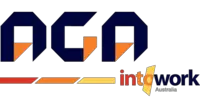
This role has a low level of AI exposure. Core skills such as adaptability, social intelligence, and complex physical tasks remain beyond the capabilities of current AI.
Explore all careersAn Instrumentation Technician ensures automated equipment operates safely, performing installation, calibration, testing, and maintenance tasks.
Get qualified to work as an Instrumentation Technician with a course recognised across Australia. Speak to a training provider to learn more.


















In Australia, a full time Instrumentation Technician generally earns $1,700 per week ($88,400 annual salary) before tax. This is a median figure for full-time employees and should be considered a guide only. As you gain more experience you can expect a potentially higher salary than people who are new to the industry.
 Courses.com.au Team
Courses.com.au Team
The number of people working in this industry has remained stable over the last five years. There are currently 160 people working in this field in Australia and many of them specialise as an Instrumentation Technician. Instrumentation Technicians may find work across all regions of Australia.
Source: Australian Government Labour Market Insights
 Courses.com.au Team
Courses.com.au Team
If you’re interested in becoming an Instrumentation Technician, consider enrolling in a Certificate III in Instrumentation and Control. This course shows you how to calibrate, adjust and repair instruments used in a range of industries. You’ll also be introduced to electrotechnology equipment and circuitry. You could also consider a Certificate IV in Electrical – Instrumentation.
 Courses.com.au Team
Courses.com.au Team
Browse occupations related to Instrumentation Technician



If you are considering a rewarding career as an Instrumentation Technician in Victoria, you've made a smart choice. Instrumentation Technicians play a crucial role in a variety of industries, including mining, oil and gas, and various engineering fields. By enrolling in one of the many Instrumentation Technician courses in Victoria, you can gain the skills and knowledge necessary to thrive in this in-demand profession, ensuring that you meet the ever-evolving needs of employers across the region.
Completing an Instrumentation Technician course not only prepares you for specific roles, but it also opens doors to related job opportunities. For instance, graduates often find pathways to roles such as Plant Operator, Mechanical Fitter, or even Electrical and Instrumentation Technician. With the skills acquired from these courses, you can enhance your employability and earn a competitive salary within Victoria's thriving job market.
The need for skilled professionals in sectors such as mining and oil and gas is consistently growing. Those looking to get a head start can explore additional areas of study by considering Engineering courses or Trades courses. For example, students might also consider pursuing qualifications as an Apprentice Electrician or delve into Mining Engineering. These interconnected fields not only enrich your understanding but also enhance your versatility in a competitive job landscape.
Victoria boasts a diverse job market, and those trained as Instrumentation Technicians often have various options, including positions such as Driller or Electrical Supervisor. By completing your training, you not only acquire essential technical skills but also gain insights into modern technologies and best practices within the industry. This education equips you to adapt to the challenges of the field, making you an asset to employers looking for knowledgeable professionals.
As you explore your options for training, always consider how your choice of course aligns with your career aspirations. With attractive possibilities, such as becoming an Mining Machine Operator or an Electrical Linesman, an Electric Vehicle Technician or a Power Systems Engineer, the future looks bright for Instrumentation Technicians in Victoria. Discover the full range of Instrumentation Technician courses in Victoria available today and take the first step towards a successful career.